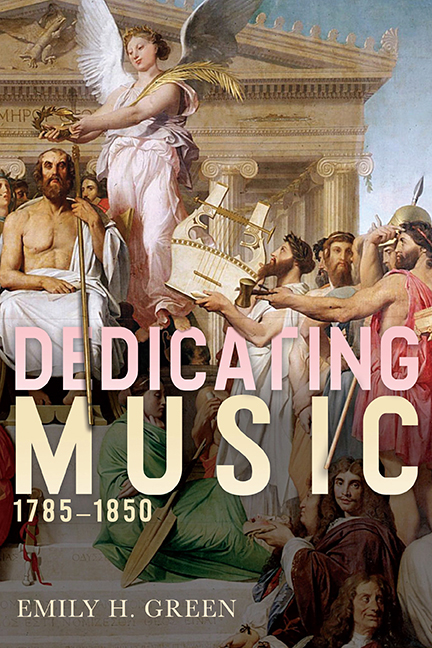Introduction: Encountering Dedications
Published online by Cambridge University Press: 03 September 2019
Summary
In 1764, Jacques-Louis Ménétra penned a memoir of his misadventures as a journeyman through the French countryside. His prose opens with a confused and colorful passage:
To my mind
Made to stand, my mind, above all your scribbling
This will be a preface or at any rate a dedication
Surely destined for the eyes of magistrates
or at very least some head of State
asking humbly for their suffrage
and making a show of pompous verbiage
and so, my mind, you're probably going to speak of your ancestors
and seek by your writings to make them known
and trace your origins to all those noble knights
and your nobility at least thirty-quarters
so that your children and little nephews
will glory in their earliest forebears
But if you're going as I cannot believe
To bid farewell to the common class of men
I hope to see all these writings tossed into the fire
You must know my mind that man is born glorious
They will find rightly that there is no spelling or comma
Much less any vowel or consoles [sic] and many gaps
They will say that you are my mind a poor scribbler
That you show off your weaknesses and defects and errors
You see that your papers are filled with errata
Believe me tear it all up and burn this mess
This is Ménétra's idea
Ménétra is entertainingly equivocal about a number of things: the status of this text as a preface or a dedication; the identity of his addressee (his mind, the scribbler; his body, the origin of a line of progeny); the identity of his reader (the “common class of men” or “heads of state” and “magistrates”); and how precisely autobiographical the body of his text will be (tracing his ancestry to “noble knights” that may or may not exist in his family's past). In the end, he is not even certain he wants anyone to read his story at all. A more appropriate paratextual moniker for this passage might be apology, for its oft-defensive posture.
Regardless of the label, Ménétra's opening gambit accomplishes a great deal. Through his very confusion of language and function, Ménétra communicates a distinctive persona: one that is familiar with but not fluent in the trappings of literature, one with clumsy aspirations of greatness couched in a mix of clever and persistent errors.
- Type
- Chapter
- Information
- Dedicating Music, 1785–1850 , pp. 1 - 38Publisher: Boydell & BrewerPrint publication year: 2019

